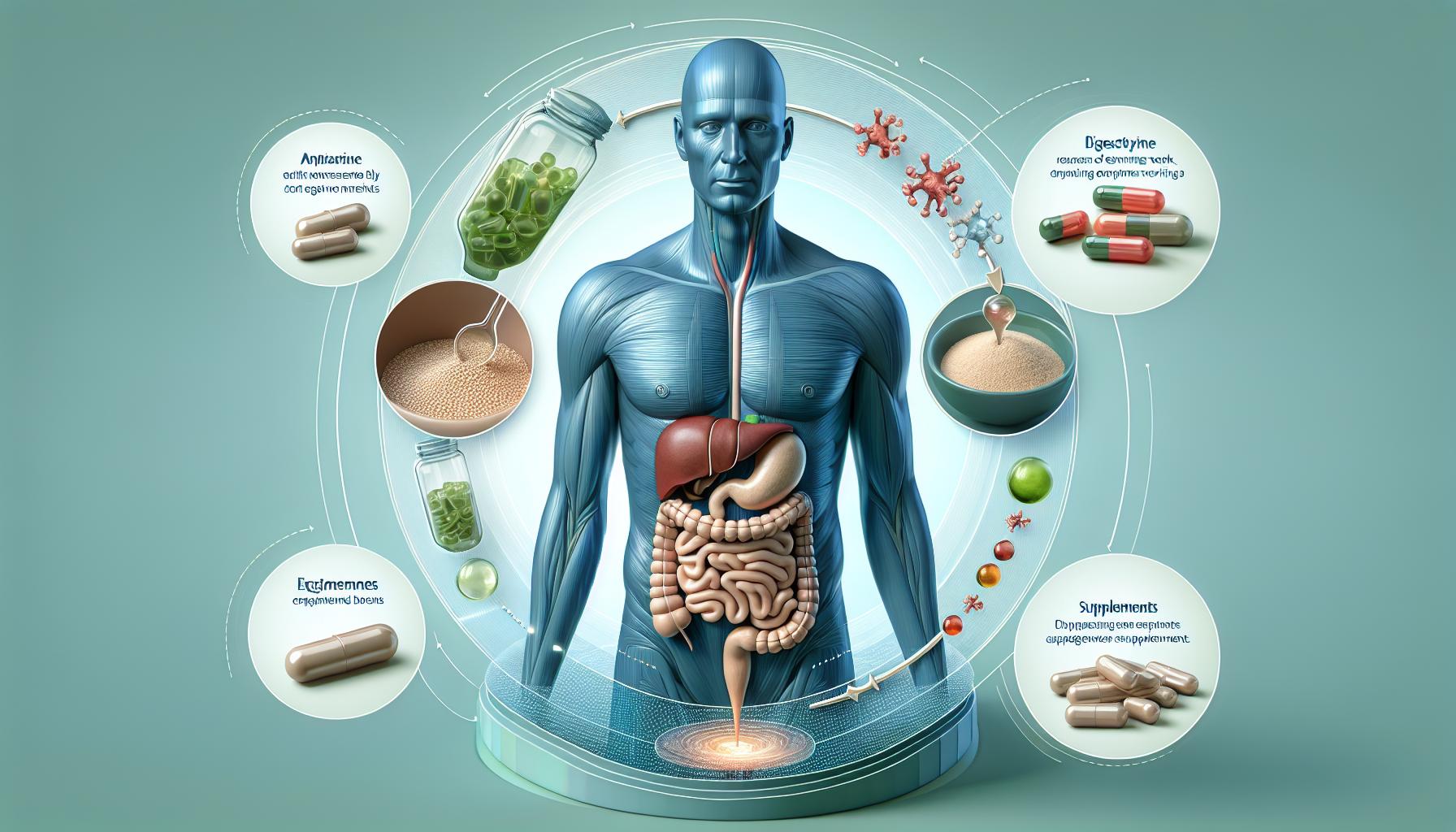
Introduction to Digestive Enzymes
You may have asked yourself, “how long does it take for digestive enzymes to start working?” In answering this query, let’s first note that digestive enzymes are like the diligent workers in your body’s ‘factory,’ starting their task the moment food hits your palate. This biochemical battalion sparks chemical reactions to break down food into usable nutrients. The following discourse will delve into the complexities of digestion and the pivotal role enzymes play, including when they swing into action and what affects their efficacy.
The Role of Digestive Enzymes
Digestive enzymes are a crucial player in the symphony of digestion. Just as a conductor leads an orchestra into producing a harmonious melody, so to does our brain command these enzymes to begin their work. This starts with anticipation of food, involving sight, smell or even the mere thought can signal the production and release of digestive enzymes.
The Process of Digestion
The first act in the play of digestion does not begin in the stomach, as you may assume, but actually involves our mouth. Our saliva contains an enzyme called amylase which initiates the breakdown of carbohydrates. Added to this processing power is the mechanical work from of our teeth, making food easier for enzymes to break down once it reaches the stomach and intestines.
How Long Does It Take For Digestive Enzymes To Start Working?
Digestive enzymes begin to act almost immediately upon entering the mouth with saliva and continue their action throughout the digestive tract. The immediate effect on food digestion varies, with enzymes in the stomach working within minutes to an hour and those in the small intestine taking several hours to fully break down food for nutrient absorption.
Timing of Digestive Enzymes
So, how quickly do these digestive enzymes start their job? The short answer: almost immediately. As noted, enzymes like amylase begin their work in the mouth, making a head start from the very first bite. However, this is just the initial step. Other enzymes enter the scene in the stomach and small intestines, pouncing on proteins and fats to decompose them into more digestible particles.
Speed of Digestion
The digestive process can be likened to a well-organized assembly line. Each enzyme has a specific role to play, and, together, they ensure that food is meticulously transformed into a form that the body can easily absorb and use. The speed of digestion, however, can vary depending on several factors including the type of food, individual metabolic factors, and overall gut health.
Impacting Factors on Digestive Enzymes
Despite the admirable efficiency of digestive enzymes, internal and external factors can potentially disrupt their performance. These are akin to roadblocks on a highway, causing unexpected delays. Factors such as stress, an unbalanced diet, certain medications, or existing medical conditions can affect the production and activity of these enzymes.
Improving Enzyme Effectiveness
Fostering good digestion isn’t an uphill battle. By including more raw fruits and vegetables in your diet, which naturally contain enzymes, you can give your body a helping hand. Similarly, staying properly hydrated, managing stress, and maintaining a balanced diet can all contribute to an effective digestive process.
Conclusion
To wrap up, digestive enzymes spring into action pretty much the moment food hits your mouth. As your dips into the plate, enzymes like amylase already start breaking down complex carbohydrates, making digestion a nearly instant process. But remember, while our body does an impressive job, it takes all elements of a balanced lifestyle to ensure the whole process is running smoothly and efficiently.
Frequently Asked Questions
1. Do digestive enzymes help with bloating?
Yes, digestive enzymes can assist with alleviating issues like bloating by promoting improved digestion of food.
2. What happens if you have a lack of digestive enzymes?
A lack of digestive enzymes can hinder the full breakdown of food, preventing your body from effectively absorbing all nutrients and potentially causing gastrointestinal discomfort.
3. When should I take digestive enzymes?
Digestive enzymes are best taken just before you eat to maximize their benefit during the digestion process.
4. Are digestive enzymes safe?
Generally, digestive enzymes are safe to embrace as part of a healthy lifestyle. However, it’s always savvy to consult with a healthcare provider before starting any new dietary supplement.
5. Can I have too many digestive enzymes?
While digestive enzymes are necessary for good digestion, your body has a finite requirement. A surplus would not be harmful but is usually unnecessary, as your body naturally produces enough to fulfill your digestive needs.

